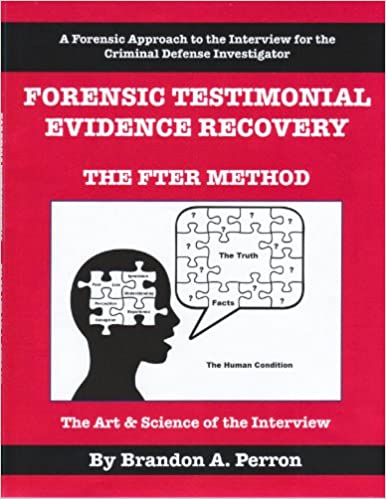A persistent theme in the practice and philosophy of science (and of every other field as well, for that matter), through the history of western civilization from Heraclitus to Steven Hawking, is the problem of ‘realism’ and ‘anti-realism’. In his landmark Critique of Pure Reason, Emmanuel Kant described two dimensions of reality: the “noumenal” dimension of reality as it is in itself, and the “phenomenal” dimension of reality as it appears to us after being filtered through the lens of our sense-perception, cognitive processes, and mental categories. Kant contended that our epistemic purview (possible knowledge of the world) is confined to the limits of the phenomenal dimension, and we are unable to ever perceive reality as it is in the noumenal dimension. Along these Kantian lines then, realism is the theory that our ideas about the world (whether scientific or otherwise) are ‘factual’ in the sense of revealing the ultimate ‘Truth’ about the way the world ‘actually is’. Anti-realism is the theory that our ideas about the world are symbols, maps and models of the world, but, because of our limited and perceptually biased perspective on reality, these models are not (and cannot be) objectively or literally ‘factual’ in the way that realism claims. Indeed, this suggests further that there may not –for all we know—be any objectively ‘real’ world independent of our senses at all.
Contemporary philosopher of science (and one of the most prominent scholars in the field) Bas Von Fraassen’s ‘constructive empiricism’ attempts to reconcile these contradictory positions by changing the definition of what constitutes an objective fact about the world. When science posits a fact, this fact is ‘true’ scientifically so long as it is useful in supporting successful scientific predictions. It is true for the purposes of, and within the epistemic parameters of, the scientific paradigm or system within which it is posited. Although it may be useful as a tool for enhancing our understanding of reality in general (deciding guilt or innocence in a criminal case for instance), it has no grand, all-encompassing epistemic authority, or objective truth, outside of science. We can neither confirm or deny that a scientific fact is true of reality in any ultimate or absolute sense.
Science, according to Van Fraassen, is therefore ‘realist’ in the sense that there are effective and useful objective standards for determining the veracity of scientific claims by scientific standards. However, it is also ‘anti-realist’ in the sense that its ideas can’t be confirmed outside the particular standards of veracity that science uses. The picture of the world that it yields may indeed be just symbols, maps, and models, as the anti-realists claim—and we certainly can’t assume that they are anything more than this…..but given the subjective epistemic restraints on the scope of our knowledge, we are simply in no position know. We can still talk of a scientific claim as ‘true’ or ‘false’, or a scientific ‘fact’ being well-established, but we have to remember that these refer to ‘truth’ and ‘factualness’ by scientific standards— limited to the purview of science, rather than applying to reality in an absolute sense.
One practical implication of the realist /anti realist debate in science can be found in the field of contemporary criminal investigation. In criminal investigation, we use scientific tools all the time—often in a decisive way—to establish facts and arrive at truth. Forensic analysis reveals critical and important aspects of the reality we are attempting to explore. It can reveal things like criminal identification, the location of perpetrators and victims, the accuracy of witness testimony, and the nature of the crime itself. However, physical facts and scientific truths (even if they could be established with absolute certainty—which they can’t) never reveal the entire truth of the situation under investigation from some absolute, unmediated, ‘Gods-eye-view’. The truth of the situation is always more than, and different from, anything scientific tools and methods are capable of revealing. The most a thorough –even exhaustive—criminal investigation can provide is one kind of lens through which, or vantage-point from which, to view an infinitely complex and intricate array of circumstances that are too expansive and nebulous to ever capture via any single description or narrative (or perhaps, to ever understand in any final or complete way at all). Popular media and some sectors of the professional investigative community often contend that science is ‘factual’ in the sense that it yields truth in the traditional ‘realist’ sense—that it provides an objective or complete depiction of the situation in question. However, Van Frassen’s ‘constructive empiricism’ reminds us that all situations are too complex, multi-dimensional, and unquantifiable to be reducible to mere physical data. The popular current belief that conclusive scientific evidence in a criminal investigation ‘closes’ the case and reveals the entire truth of the situation, is an erroneous one.
Indeed, for the same reasons, the constructive empiricist critique of realism extends beyond investigative forensics to the investigation as a whole. No account of any situation can ever be exhaustively understood through any investigative lens, no matter how broad and inclusive in scope it may be. Any investigation’s scope is limited by its selection of subject matter, standards of evidence, methods of inquiry, and tools for research. The investigation’s vision remains restricted to what it’s epistemic framework can encompass. To return to Kant’s insight, the ‘noumenal’ dimension of reality is always beyond our ‘phenomenal’ purview–which can never transcend the limits of its epistemic scope and methods, whatever these may be. For investigators, like scientists and philosophers, the case is never closed.
We hope you enjoy our articles. Please note, we may collect a share of sales or other compensation from the links on this page. Thank you if you use our links, we really appreciate it!



